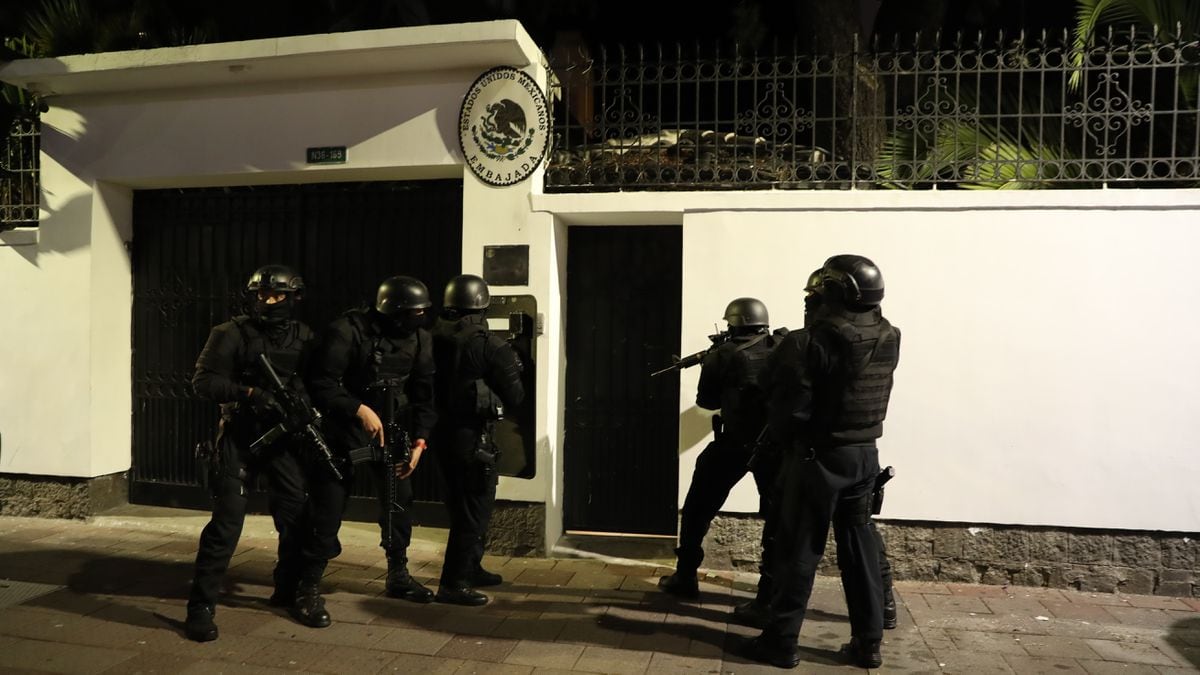To talk about integration.
To trigger the necessary debate on the next step in the life of a person who has migrated and decides to settle in a territory that he will share with those who were born there.
That is why the journalist Carla Fibla wrote
My home is anywhere
(Libros.com), which has just been presented in Spain.
Because his story of origin concerns us, but also what this person expected of us, of this other landscape that sometimes truncates his expectations, but whose horizon can always clear again, if we are able to listen.
More information
The Madrid Court does not see a hate crime in the Vox cartel against immigrant minors
Surviving without papers and in a pandemic as a Venezuelan refugee in Ecuador
More than 200 sub-Saharan migrants manage to enter Melilla in a new leap over the fence
One in four asylum seekers has ever slept on the street in Spain, Fibla tells us (Valencia, 1973), in the introduction.
Nobody like her, who has lived in Egypt, Morocco, Jordan and currently resides in South Africa, for this listening exercise about what it means to be away from home, something that may not be at odds with
feeling like-at-home .
Because, paradoxical as it may seem, the home can, indeed, be built anywhere.
According to the former correspondent of Cadena SER, in this adventure she was guided, from the first moment, by two authors: the Moroccan sociologist Fátima Mernissi, in
El Hilo de Penélope / Les sinbad marocains
, and the Polish journalist Ryszard Kapuscinski, through his
Encounter with the other.
In this last
It reads: "The encounter with the other is not something simple and automatic, but something that requires a will and an effort that not everyone - and not always - is willing to face".
For this, it will be necessary, says Fibla, "to make the effort to get closer, check how we feel and decide what involvement we want to have, to what extent we are willing to let what happens to the other affect us."
My home is anywhere
, which was financed through crowdfunding, continues another of his already published work, an audiobook in collaboration with Nicolás Castellano, called
My name is nobody.
The oldest trip in the world
(Icaria, 2008).
Figures with or without pulse
The work aims to broaden a path of access to the total reality of migrations, from the large numbers that usually stun us to individual voices and their social contexts of origin, transit and arrival, without ceasing to question each of the absolutes that they tend to abound in most of the media reports. This path is structured through the presentation of updated statistics, a conversation with Nicolás Castellano - an expert in migration from Cadena SER -, the testimonies of some thirty other references (activists, journalists, NGO workers, academics, lawyers and jurists) who analyze whether migrants are building a home in Spain, from the debate on the usefulness of borders and the direction to continue on the current path.
However, there are also home-routes, which are the ones that Fibla tries to build, together with associations and people on the move whose contribution is valuable and their initiatives, essential, in the society to which they arrive.
The proposal on such a network of people, groups and associations joins a wide bibliographic recommendation and the infographics of The World Order that support the story.
“The West venerates those Pangeist internationalists who go in search of the heart of darkness, but it fights those who are guided by the light of reason.
They are foreign.
Nothing is more alarming than the foreigner who arrives ”, anticipates the photographer Sofía Moro in the prologue, which names Don Quixote, Ulises and Marco Polo, to recreate that observation from which he leaves as a citizen to return as a foreigner.
Indeed, you can be a citizen and a foreigner, in both directions and in all its meanings
In fact, there are figures referring to portions of the Earth, in this case, to our territory, which hardly allow us to approach the global phenomenon, related to the nature of the human being, such as the desire or the demand to move.
Among them, Fibla mentions that the negative vegetative balance in Spain (more deaths than births) was offset, in 2019, thanks to the positive balance between immigration and emigration, by 451,391 people, according to the National Institute of Statistics.
Or that, for example, of the 5,235,375 foreigners in Spain in 2020, 6.33% were born in Spain.
Indeed, you can be a citizen and a foreigner, in both directions and in all its meanings.
Beyond
paterism
In the recent presentation of the book, at the Casa Árabe in Madrid, Castellano highlighted in Fibla his “ability to persist” in this matter, while pointing out a smiling analogy: “Everyone thinks they know about immigration as they think they know about soccer and this reality is not explained with easy headlines ”. Here, according to him, “a very important documentation work, which exceeds the reality of irregular migration by sea, which continues to represent a very small percentage of those more than five million people not born in Spain who live with us; with an approach that goes far beyond
paterism
or the southern border, which continue to be news, and even goes beyond the Canarian route, which is the deadliest route in the world ”.
According to the expert from Cadena SER, there is an “internal fence”, borders within Spain, which has to do with the immense difficulties faced by any foreigner “to obtain documentation or to access a residence permit and work or family reunification ”.
Fibla's book reads: “Spain is not a host country, when official data is analyzed. It is not so with asylum seekers, who, in addition to being forced to wait months or years, observe how a minority of their applications are resolved favorably. Neither is it in terms of deportations: the Ministry of the Interior deported, in 2019, 30% of people with an order to leave the territory (11,153) and the average for the European Union is 29%. In recent years, 30 bilateral agreements have been signed with countries that accept the return of their nationals ”.
In addition to this race of physical obstacles that sometimes seem insurmountable, there are also the frontiers of xenophobia and daily racism, or the practical impediments linked to the general conditions of a population cornered by the persistent economic crisis, such as the price of money. living place.
Both journalists said that one can have another perception of the migratory phenomenon through neighboring communities, although part of the state policies of recent years circulate on paths too distant from those of a home. Hence the value of conversations with those people who can bring experiences and depth to the concept of belonging, which has nothing to do with the institutional. In this sense, during the presentation ceremony, a meeting that Fibla organized for six hours in his own home and that occupies 30 pages of the book, between three young women with very different profiles: a Moroccan student, a Somali refugee and a Spanish woman. Afro-descendant. "I offered them words (skin color, veil, for example) and they told me what each of these terms meant in this society",commented the author.
"Communities are gaining public space, but we also need local society to get involved," said Fibla, who currently works at
Mundo Negro
magazine
.
For this work, he traveled through several Spanish cities, in an attempt to understand where the distorted vision of people on the move comes from that allows "the violation of their rights in Europe", in his own words.
Regarding the integration concept, the journalist affirmed that there is helplessness: "They need safe spaces, which are creating and taking an important leap to organize themselves, even though the governments have not taken into account the communities of people not born in Spain."
To clarify this point, Castellano added:
"
There is not a priority in rights but a
security
perspective
on migrations."
"Coming to a place and being able to feel from there is one of the rights that we should all have," concluded Fibla.
FUTURE PLANET can follow on
,
and
, and subscribe
here
to our 'newsletter'
.

/cloudfront-eu-central-1.images.arcpublishing.com/prisa/JHR445VOLNHNZAG66GX4OQ5NEQ.jpg)


/cloudfront-eu-central-1.images.arcpublishing.com/prisa/SWA3YXJH7NEJTH7RDLHM44VVRE.jpg)


/cloudfront-eu-central-1.images.arcpublishing.com/prisa/63IZKYAU75BVXF4OCHSR7DD2LM.jpg)

